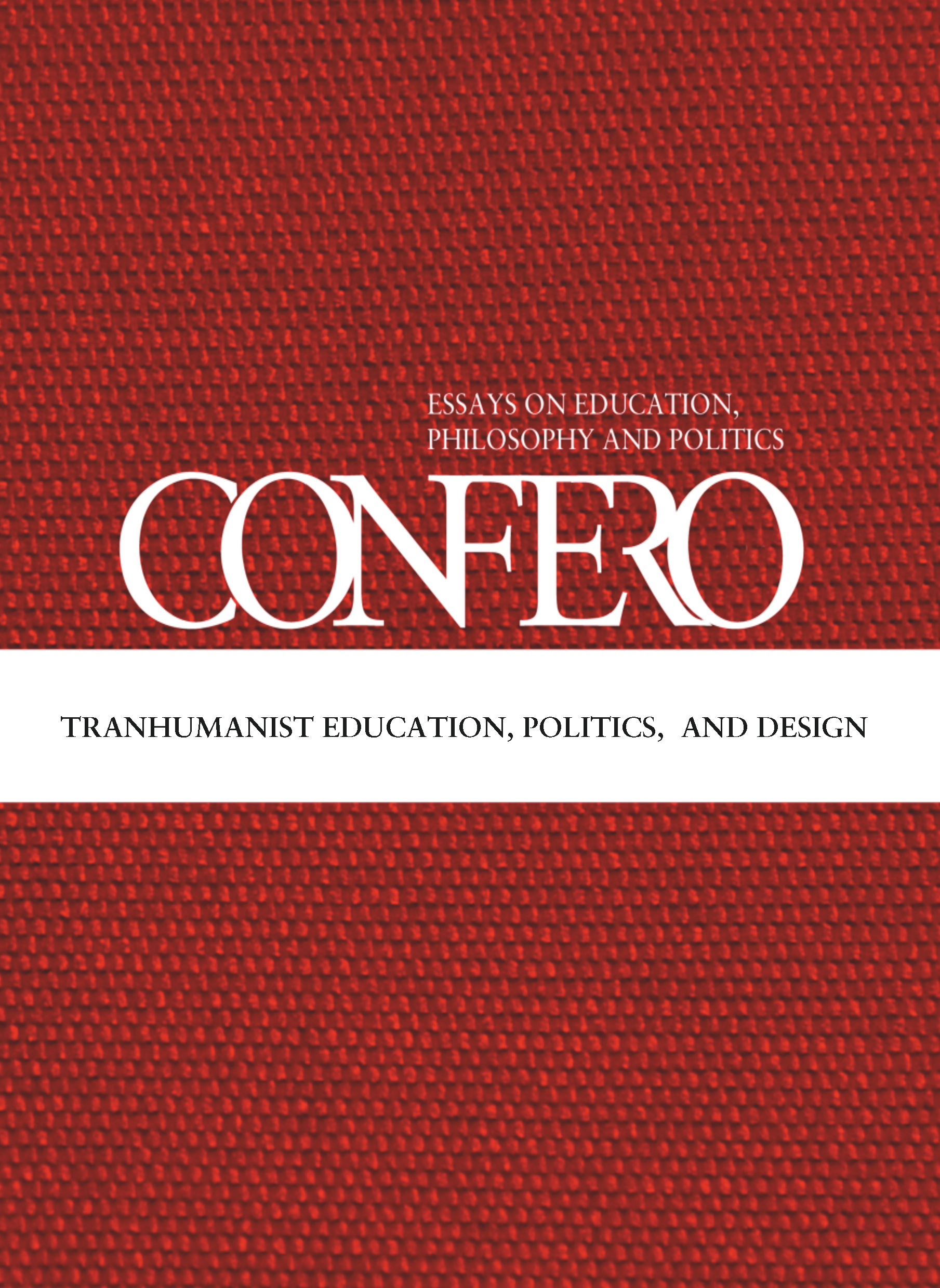The grand narratives of democratic and libertarian transhumanism
A Lyotardian approach to transhumanist politics
DOI:
https://doi.org/10.3384/confero.2001-4562.161217Abstract
Abstract not available.
References
Bailey, Ronald. “Trans-Human Expressway: Why Libertarians Will Win the Future.” Reason.com (2005, May 11). http://reason.com/archives/2005/05/11/trans-human-expressway [Retrieved 15 May 2016]
Barbrook, Richard. “Cyber-Communism: How the Americans are Superseding Capitalism.” Science as Culture 9.1 (2000): 5-40. DOI: 10.1080/095054300114314
Bostrom, Nick. “Transhumanist Values.” Review of Contemporary Philosophy Vol. 4 (2005): 3-14. DOI: 10.5840/jpr_2005_26
Bostrom, Nick. “Technological Revolutions: Ethics and Policy in the Dark.” Nanoscale: Issues and Perspectives for the Nano Century, ed. Nigel M. de S. Cameron and M. Ellen Mitchell, New Jersey: John Wiley, 2007. 129-152. DOI: 10.1002/9780470165874.ch10
Fairfield, Paul. “Habermas, Lyotard and Political Discourse.” Reason 19 (1994): 58-80.
Goertzel, Ben and Bugaj, Stephan. The Path to Posthumanity: 21st Century Technology and Its Radical Implications for Mind, Society and Reality, USA: Academia Press, 2006
Hughes, James. Citizen Cyborg. London: Routledge, 2004
Lyotard, Jean-Fançois. The Postmodern Condition: A Report on Knowledge. London: Manchester University Press, 1984
Lyotard, Jean-Fançois and Thébaud, Augustus J.. Just Gaming. Minneapolis: University of Minnesota Press, 1985
Lyotard, Jean-Fançois. “Universal History and Cultural Differences.” The Lyotard Reader, ed. Andrew Benjamin, Massachusetts: Blackwell Publishers Ltd., 1989. 314-324.
Lyotard, Jean-Fançois. The Inhuman: Reflections on Time. Cambridge: Polity Press, 1991
Lyotard, Jean-Fançois. Libidinal Economy. London: Continuum, 2004
Malpas, Simon. Jean-François Lyotard, New York: Routledge, 2003
Mann, Bonn. Women’ s Liberation and the Sublime: Feminism, Postmodernism, Environment. New York: Oxford University Press, 2006 DOI: 10.1093/0195187458.001.0001
More, Max. “The Extropian Principles 2.5.” Aleph. (1993). http://www.aleph.se/Trans/Cultural/Philosophy/princip.html [Retrieved 15 May 2016]
More, Max. “The Principles of Extropy in Brief.” ExI. (2003). https://web.archive.org/web/20131015142449/http://extropy.org/principles.htm [Retrieved 15 May 2016]
Pulkkinen, Tuija. “Jean-François Lyotard on Political Judgement.” Finnish Yearbook of Political Thought Vol. 2 (1998): 131-144. DOI: 10.7227/r.2.1.7
Schultz, William. “The Ambivalence of Our Postmodern Condition: Lyotard’ s Diagnosis and Prognosis.” Costis. (1998). http://www.costis.org/x/lyotard/schultz.htm [Retrieved 15 May 2016]
hawver, Lois. “Paralogy.” Massey. (1996). http://www.massey.ac.nz/~alock/theory/l14.htm [Retrieved 15 May 2016]
Singer, Peter. “Darwin for the Left.” Unsanctifying Human Life, ed. Helga Kuhse, Massachusetts: Blackwell Publishers Ltd., 2002. 358-366.
“The Transhumanist Declaration.” h+pedia. https://hpluspedia.org/wiki/Transhumanist_Declaration, [Retrieved 17 December 2016]
Toffler, Alvin. “The Future as a Way of Life.” Horizon Magazine Vol VII, Num 3 (1965): 108-116.
Williams, James. Lyotard & the Political. London: Routledge, 2000 “What is Transhumanism?” What Is Transhumanism. www.whatistranshumanism.org. [Retrieved 15 May 2016]
Downloads
Published
Issue
Section
License
Copyright (c) 2016 John Mazarakis

This work is licensed under a Creative Commons Attribution 4.0 International License.
As Confero is an open access journal, this means that anyone who can access the Internet can freely download and read the journal. There are no commercial interests for Linköping University Electronic Press or Confero in publishing the journal.
The core idea of open access is that copyright remains with the author(s). However, we publish with the agreement of the author that if she or he decides later to publish the article elsewhere, that the publisher will be notified, prior to any acceptance, that the article has already been published by Confero.
When publishing with Confero, it is with the agreement of the author that if they make their article available elsewhere on the internet (for example, on their own website or an institutional website), that they will do so by making a link to the article as published in Confero using the Digital Object Identifier (DOI) number of the article and acknowledge in the text of the site that the article has been previously published in Confero.
As evident by the markers on our homepage, Confero falls under the Creative Commons licence abbreviated BY. This means that we allow others to use, spread and elaborate on the published articles, as long as they acknowledge who published it and where it was originally published.



